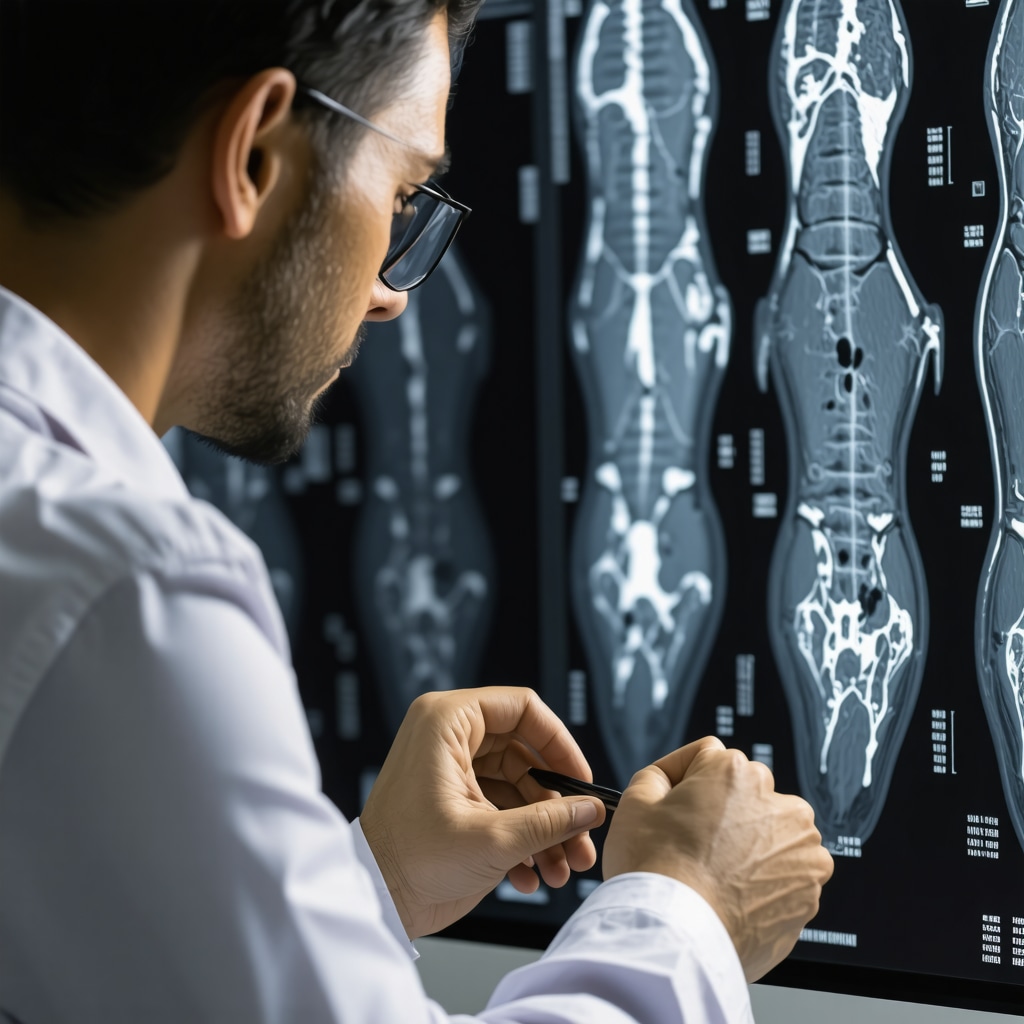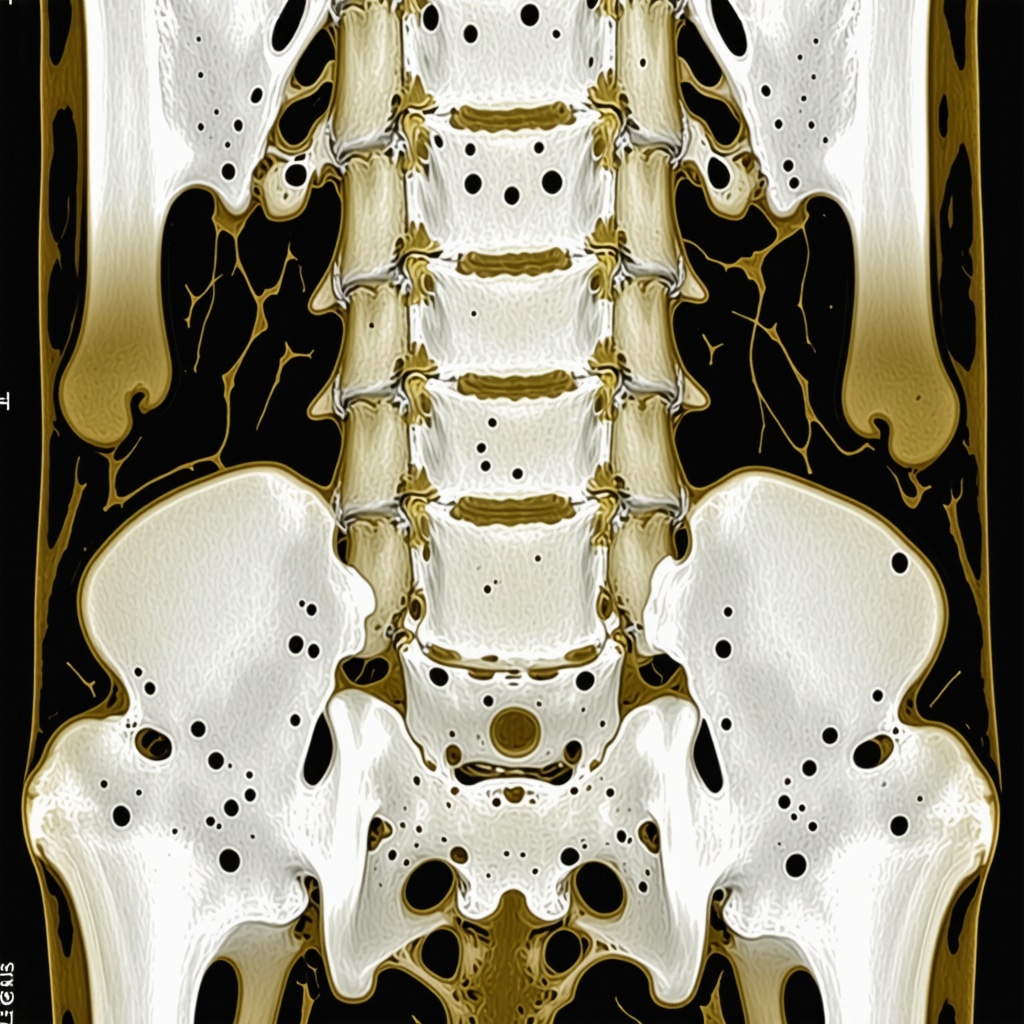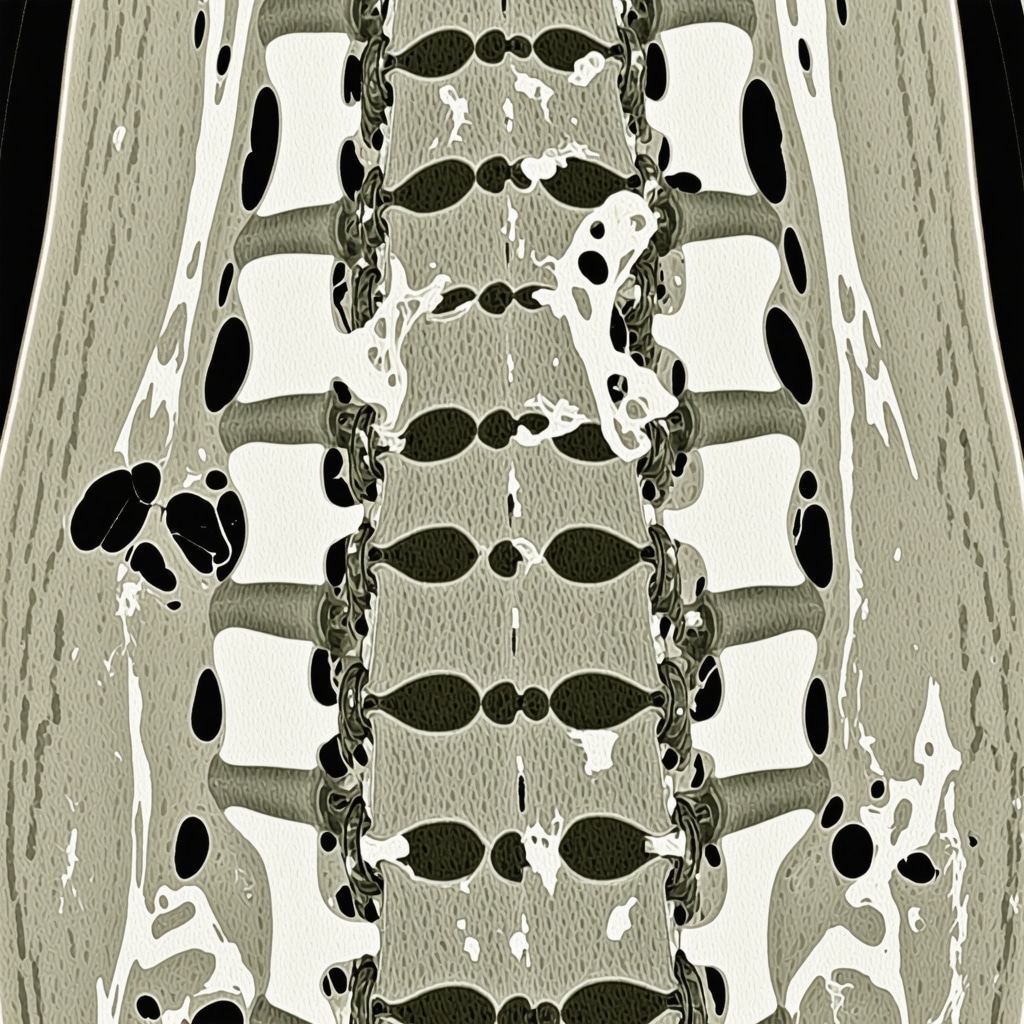My Journey to Recovering from Spine Surgery in NJ
When I faced my own spine surgery journey here in New Jersey, I quickly realized that the real challenge begins after the procedure. The follow-up process is crucial for ensuring long-term success and avoiding future complications. Sharing my experience, I want to highlight some essential tips that helped me stay on track and regain my quality of life.
Why Regular Follow-Ups Are the Backbone of Recovery
In my initial consultation, my orthopedic surgeon emphasized the importance of consistent follow-up visits. These appointments allowed me to monitor healing, adjust medications, and address any concerns promptly. According to a trusted source like top NJ spine specialists, long-term success after spine surgery hinges on diligent post-operative care.
Key Follow-Up Tips That Made a Difference
Listening to Your Body and Communicating Openly
During my recovery, I learned to pay close attention to pain levels and mobility changes. If something felt off, I didn’t hesitate to contact my doctor. Clear communication helps catch issues early and prevents setbacks.
Adhering to Rehabilitation and Activity Guidelines
My doctor provided a detailed rehab plan, and I stuck to it meticulously. Gradually increasing activity while avoiding strain was vital. For expert guidance, I also explored orthopedic rehab tips after lumbar fusion.
Maintaining a Healthy Lifestyle for Spinal Health
Proper nutrition, weight management, and avoiding smoking significantly contributed to my recovery. These habits support spinal integrity and long-term well-being.
How Do I Know If My Follow-Up Is Enough?
This is a common question. I found that regular check-ins, as recommended by my specialist, are essential. If you experience persistent pain, numbness, or limited mobility, seek advice sooner rather than later. To find a reliable spine doctor near you, consider exploring signs you need a spine specialist in NJ.
Remember, recovery is a collaborative effort between you and your healthcare team. Trusting their guidance and staying engaged makes a significant difference.
What Are the Long-Term Benefits of Proper Follow-Up?
In my experience, diligent follow-up care not only alleviates pain but also prevents future surgeries and complications. It’s about building a foundation for lasting spinal health and a better quality of life.
If you’re currently navigating post-spine surgery recovery, I encourage you to share your experiences or ask questions in the comments below. For personalized assistance, don’t hesitate to contact a trusted NJ orthopedic specialist.
Monitoring Spinal Healing: What Every Patient in NJ Should Know
After spine surgery, diligent follow-up care is the cornerstone of successful recovery. Regular visits allow your orthopedic specialist to track healing progress, identify potential complications early, and tailor rehabilitation plans precisely. According to a comprehensive study published by the National Institutes of Health, consistent post-operative monitoring significantly reduces the risk of re-operation and enhances overall outcomes.
Nuanced Aspects of Follow-Up Care that Make a Difference
Understanding the Role of Advanced Imaging in Follow-Up
One often overlooked aspect of post-surgical care involves imaging techniques like MRI or X-ray scans. These tools provide detailed insights into the healing process, ensuring that hardware placement remains optimal and that no unseen issues, such as inflammation or nerve compression, develop. For patients in NJ, working with clinics equipped with state-of-the-art imaging centers can make a substantial difference. Find trusted facilities near you through resources like top NJ radiology centers.

Could Persistent Post-Op Pain Signal a Hidden Issue?
While some discomfort is expected during recovery, ongoing or worsening pain may indicate complications such as nerve impingement or infection. Experts recommend timely evaluation by a spine specialist, especially if pain persists beyond the typical healing window. For comprehensive guidance, consult trusted sources like signs you need a spine specialist in NJ.
The Practical Side: Managing Expectations and Staying Engaged
Achieving optimal outcomes requires active patient participation. This involves adhering strictly to prescribed physical therapy routines, maintaining a healthy weight, and avoiding harmful habits like smoking, which can impair healing. An expert approach also includes understanding the subtle signs of improvement versus setbacks, empowering you to communicate effectively with your doctor.
What Are the Long-Term Gains of Consistent Follow-Up?
Long-term benefits extend beyond immediate pain relief. Regular follow-up can prevent future degenerative changes, reduce the likelihood of additional surgeries, and promote sustained spinal health. This proactive approach aligns with the latest guidelines from authoritative bodies such as the top NJ spine specialists, emphasizing that ongoing care is integral to enduring success.
If you’re navigating ongoing recovery or want to optimize your post-surgical plan, consider consulting with experienced NJ orthopedic specialists. Sharing your experiences or questions can help others in similar situations—feel free to leave a comment or suggest further reading on comprehensive spine care strategies.
Embracing the Nuances of Post-Operative Healing in NJ
My journey through spine surgery recovery in New Jersey revealed that understanding the subtle, often overlooked aspects of healing can make a profound difference. It’s not merely about following a routine but appreciating the complex interplay of biological, biomechanical, and psychological factors that influence long-term outcomes. Reflecting on my experience, I realize that integrating advanced imaging, personalized rehab, and lifestyle modifications creates a more resilient foundation for spinal health.
Why Personalized Follow-Up Plans Are Essential for Lasting Results
One size rarely fits all when it comes to post-surgical care. My orthopedic surgeon emphasized tailoring follow-up schedules based on individual healing patterns and response to treatment. This approach aligns with recent studies by the NIH, which advocate for dynamic, patient-specific monitoring. Such strategies ensure early detection of potential issues like hardware loosening or degenerative changes, allowing timely interventions that preserve long-term spinal integrity.
Deepening My Understanding of Advanced Imaging’s Role
Advanced imaging modalities, including MRI and CT scans, have become invaluable tools in my ongoing recovery. These technologies provide detailed insights into soft tissue healing, nerve status, and hardware positioning that physical exams alone cannot capture. For patients in NJ seeking comprehensive care, collaborating with clinics equipped with state-of-the-art imaging improves diagnostic accuracy and guides precise treatment adjustments. To explore options near you, resources like top NJ radiology centers are vital.

Could Persistent Post-Op Pain Indicate Hidden Complications?
Persistent discomfort beyond expected healing timelines is a red flag that warrants further investigation. It may signal nerve impingement, infection, or hardware issues. From my experience, engaging with a spine specialist promptly can prevent minor issues from escalating into major setbacks. According to expert guidelines, early intervention not only alleviates pain but also preserves nerve function and prevents further structural damage. For personalized advice, consider consulting trusted NJ specialists through resources like signs you need a spine specialist in NJ.
Addressing Psychological and Lifestyle Dimensions of Recovery
Beyond physical healing, the psychological aspect plays a crucial role. Maintaining a positive outlook, managing stress, and fostering resilience can significantly influence recovery trajectories. I found that engaging in gentle mindfulness practices and setting realistic goals kept my motivation high. Additionally, lifestyle modifications such as proper nutrition, weight management, and avoiding harmful habits like smoking are essential. These not only support immediate healing but also reduce the risk of future degenerative issues, aligning with the holistic approach recommended by leading NJ orthopedic clinics.
How Does Ongoing Research and New Technologies Shape My Perspective?
Staying abreast of emerging research, such as minimally invasive techniques and regenerative therapies, offers hope for even better outcomes. Innovations like stem cell treatments and biologics are promising avenues that could revolutionize spinal care in the coming years. For instance, minimally invasive approaches minimize tissue disruption, leading to faster recovery and less scarring. Exploring these options with your NJ healthcare team can open new pathways for tailored, effective treatment plans.
Integrating Cutting-Edge Imaging for Precision Monitoring
One of the most pivotal aspects of my recovery journey was leveraging advanced imaging technologies such as MRI and CT scans. These tools go beyond basic X-rays, offering detailed visualization of soft tissue healing, nerve integrity, and hardware stability. In NJ, collaborating with clinics equipped with state-of-the-art imaging centers significantly enhanced my ability to detect subtle issues early, preventing potential setbacks. For those seeking comprehensive post-operative monitoring, working with top NJ radiology centers like trusted imaging specialists can make a profound difference.

Could Persistent Post-Op Pain Signal a Hidden Issue?
Persistent discomfort beyond the typical healing timeline can be a red flag for underlying complications such as nerve impingement or infection. Engaging with a spine specialist promptly is essential to prevent minor issues from escalating. Experts recommend timely assessments and interventions, which not only alleviate pain but also preserve neurological function. For tailored guidance, consider consulting specialists through resources like signs you need a spine expert in NJ.
Personalized Follow-Up Strategies for Optimal Long-Term Outcomes
My experience underscored the importance of individualized follow-up plans tailored to my unique healing response. The dynamic adjustment of schedules based on real-time progress, as advocated by recent studies from the NIH, ensured early detection of hardware loosening or degenerative changes. This proactive approach enabled me to maintain spinal integrity and avoid future surgeries, emphasizing the value of personalized, responsive care.
How Can I Effectively Document My Recovery Journey?
Accurate and detailed documentation of symptoms, imaging results, and treatment milestones is crucial, especially when coordinating with multiple healthcare providers or legal professionals. Keeping a comprehensive record not only facilitates seamless communication but also strengthens your case if legal or insurance claims arise. Resources like guidelines for medical documentation can help streamline this process.
Embracing Innovations in Spinal Care for Future Recovery
Staying informed about emerging technologies such as minimally invasive procedures and regenerative therapies, including stem cell treatments, has broadened my perspective on potential avenues for enhanced recovery. These innovations aim to reduce tissue trauma, accelerate healing, and restore function more effectively. Discussing such options with your NJ orthopedic team can open new horizons for personalized, minimally invasive interventions, like those detailed in minimally invasive back pain treatments.
Things I Wish I Knew Earlier (or You Might Find Surprising)
The Hidden Power of Patient Communication
One thing I learned the hard way was how crucial open communication with your doctor is. Early on, I hesitated to ask questions, but I soon realized that sharing my concerns helped catch potential issues before they became serious, making my recovery smoother.
Rehabilitation Isn’t Just Routine—It’s Personal
Following a rehab plan rigidly was key, but I also found that customizing exercises to how I felt each day made a big difference. Listening to my body helped me avoid setbacks and stay motivated on my healing journey.
The Surprising Role of Nutrition in Healing
I didn’t fully realize how much what I ate impacted my recovery. A diet rich in anti-inflammatory foods and proper hydration supported my body’s healing process, proving that good nutrition is an often-overlooked ally in spine recovery.
Advanced Imaging—More Than Just Pictures
Getting regular MRI and X-ray scans provided peace of mind and early detection of issues. Knowing that my hardware was in the right place and that healing was progressing gave me confidence and allowed for timely adjustments in my care.
The Psychological Aspect of Recovery
Staying positive and managing stress played a bigger role than I expected. Engaging in mindfulness and setting small goals kept my spirits high, which I believe positively influenced my physical healing as well.
Resources I’ve Come to Trust Over Time
- National Institutes of Health (NIH): Their research on post-operative care provided a solid foundation for understanding the importance of ongoing monitoring. I recommend exploring their studies to anyone interested in the scientific side of recovery.
- Top NJ spine specialists: Their expertise and patient-centered approach truly made a difference in my journey. If you’re in NJ, I suggest checking out trusted clinics through resources like this guide.
- Orthopedic imaging centers: High-quality imaging facilities near you can catch hidden issues early. I found their technology invaluable for my peace of mind and ongoing care.
Parting Thoughts from My Perspective
Recovering from spine surgery in NJ taught me that patience, communication, and a proactive attitude are essential. The journey is unique for everyone, but embracing personalized care, staying informed, and listening to your body can make a world of difference. If this resonated with you, I’d love to hear your thoughts or experiences. Sharing our stories can help others feel less alone on their path to better spinal health.

